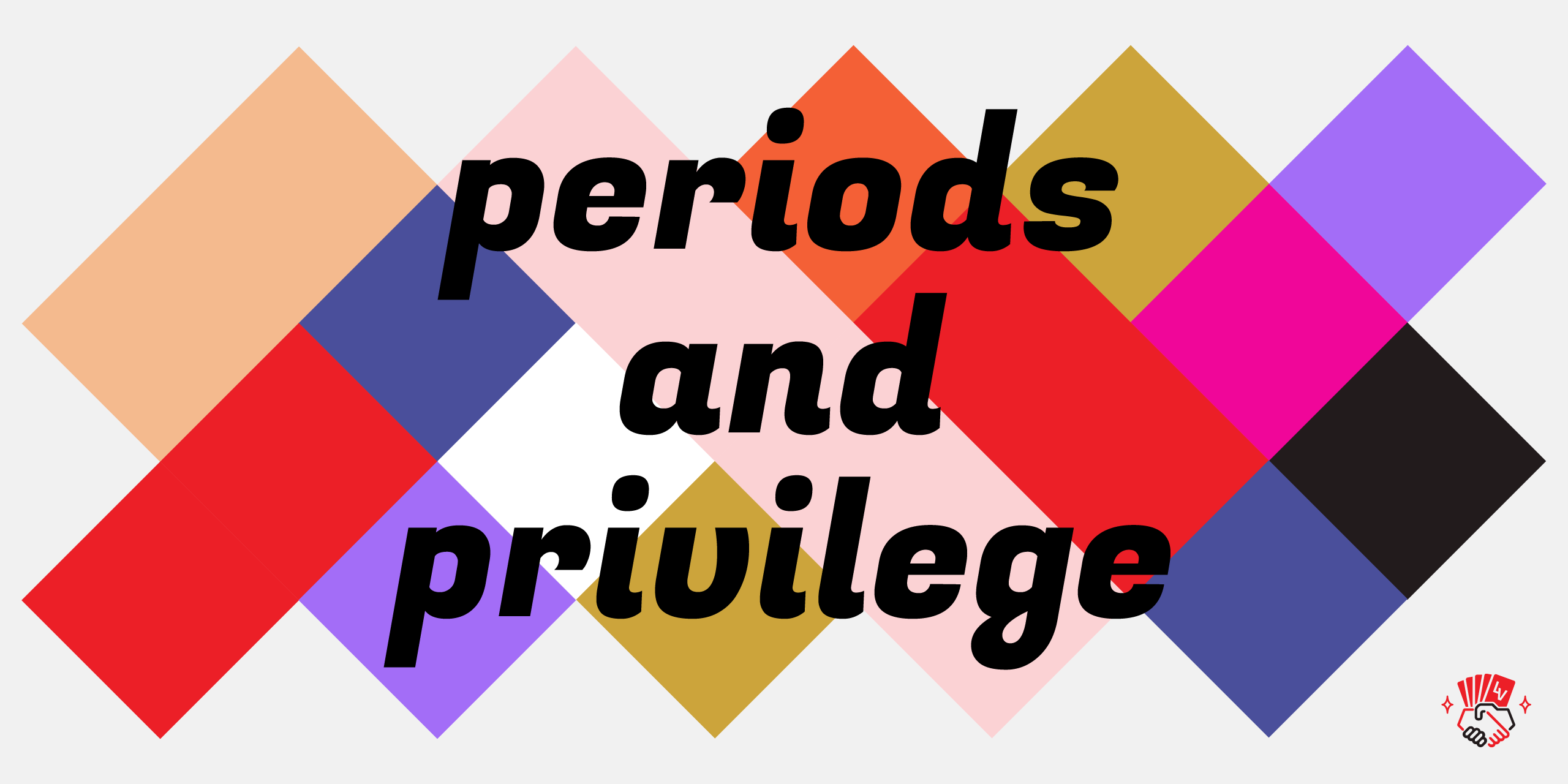Periods & Privilege
Touching my girlfriend was an after-school activity I usually relished. Unfortunately, on this particular high school day, I had the unwanted appendage of a plastic tampon and a much less cooperative version of my lover to coerce. “Stop squirming,” I pleaded, gently slapping her inner thigh, while my girlfriend reluctantly allowed me to insert the applicator. She let out a sigh of relief, surprised the experience had been quick and painless. A talented and passionate dancer, she would no longer feel self-conscious about the pad under her dancewear.
Like many black women, at the age of 17, my girlfriend had never learned how to properly use a tampon. In large segments of the black community, tampons are a forbidden taboo. They are perceived as dangerous, carrying both the stain of premarital sex and the flow of white, middle class privilege. A black woman from an extremely religious or low-income background may fear the applicator could harm her or, worse, steal her virginity. Misinformation, stigma, shame, and misogynist views about women and sex still prevent many menstruating bodies from adequately managing their monthly cycles. Menstrual hygiene access and education vary greatly across cultural and socioeconomic lines, with superior products and resources afforded only to the middle class and beyond.
Millions of women around the world miss or avoid important social, professional, and personal obligations because of period poverty and low income. Period poverty is the lack of access to sanitary products, menstrual hygiene education, washing facilities, and waste management. In the United States, women of color, immigrant women, students, working class women, incarcerated women, and homeless women and children are the groups most at risk.
I finally confronted my “period privilege” years after that afternoon with my girlfriend. To commemorate the milestone of my 26th birthday, I said an anguishing good-bye to the brand name birth control subsidized by my mother’s health insurance. I was now thankful for a generic pill, which made my flow dramatically heavier and less manageable. Within a few months, I decided my evolving sexual maturity, or rather my waning desire for random bar hookups, no longer warranted the monthly cost. My descent from designer to no birth control in less than a year forced me to reconcile with an uncomfortable reality. There is a distinguishable difference between those of us who buy pink, scented tampons and those who cannot. We must expand reproductive autonomy through increasing access to contraception and abortion, sexual health education, feminine hygiene products, and affordable health care.
Menstrual Product Drive
LVDSA’s Socialist Feminist Committee has partnered with local women & children’s shelter The Shade Tree on a Menstrual Product Drive. If you would like to make a physical donation, please text or leave a message at 702-623-6316, or you can make a financial donation here!

